Severe and unexpected challenges generated by the COVID-19 pandemic force politicians, whether democratically elected or autocratically inclined, to make tough and unpopular choices.
Russia is now one of the most affected countries, and President Vladimir Putin is compelled to abandon his recently reconfigured political agenda and take a sequence of decisions that he would rather not. He has shown uncharacteristic rationality in making these choices — for instance, the re-negotiated OPEC+ deal on oil production cuts is an example of a really painful compromise, and the pattern is growing. Will this unprecedented crisis continue to necessitate progressively more rational choices?
Bowing to force majeure
At the start of the year, Putin was moving decisively to push a package of amendments to Russia’s constitution, reshuffling the government, and resolutely withdrawing from the oil agreement with Saudi Arabia. Russia was spared the early wave of the pandemic, and it was only in late March that the scope of the unfolding disaster started to dawn on the Kremlin. Avoiding harsh words like “quarantine,” Putin announced a “work-free week,” which was then extended to last a month, and supported the enforcement of lockdown by Moscow Mayor Sergey Sobyanin. Putin indefinitely postponed the planned public vote on the constitutional amendments, then the spring draft into the army (albeit only for a month), and finally, the pompous Victory Day parade. The fierce propaganda campaign on the “true history” of World War II was discontinued, and who knows whether Putin has been spending his self-isolation writing his promised article on the causes of that war.
Some common traits can be discerned in this progression of common-sense moves. They invariably came at the last possible moment — in fact, the preparations for the parade were cancelled only after dozens of young naval cadets involved in rehearsals contracted the coronavirus. Putin tried to push responsibility for the difficult decisions to his subordinates or regional governors, so that the measures came out tentative, uncoordinated, and ineffective. The Russian ruler is visibly uncomfortable making belated concessions to irresistible force — something even he cannot mask, in spite of his usually polished image.
Rescuing arms control?
In his 2020 annual address to the Federal Assembly, delivered in January rather than in the spring as usual, Putin refrained from boasting about Russia’s “wonder-weapons,” as he did on two previous occasions. Russian negotiators have persistently signaled readiness to engage in talks on strategic stability and to include new weapons systems, like the hypersonic glide vehicle Avangard, into traditional limitations. Moscow is clearly unhappy about the fast-approaching expiration of the New Strategic Arms Reduction Treaty (New START), but understands the plain impossibility of engaging China in any nuclear arms control formats — something President Trump has advocated. It is definitely too late now to revive the broken Intermediate-Range Nuclear Forces (INF) Treaty, but it is possible for Russia to commit to delivering unilaterally to the New START obligations beyond February 2021.
Such an initiative might appear too bold, but it fits within the boundaries of rational choice. Russia cannot possibly increase its number of warheads and delivery systems beyond the present ceilings, and has no reasons to worry about an increase of the U.S. arsenal, since none is in the cards. Supplying data on the inventory (as it was done in March 2020) isn’t really a problem for Moscow, since this information is very general. Washington may not reciprocate, but an option for a new “reset” would be reserved for after the U.S. election in November.
Outflanking sanctions?
At the virtual G-20 conference in late March, Putin’s key contribution was to suggest relaxing sanctions regimes around the world because of the need to enhance cooperation in the struggle against the COVID-19 pandemic. The issue of gaining relief from Western and particularly U.S. sanctions has long been high on his agenda, and Russian think tanks have been monitoring (and downplaying) the domestic impact of sanctions with keen attention. The odd transaction involving transferring Rosneft assets in Venezuela to a state-owned shell company was intended to rescue the corporation from punishing U.S. sanctions.
The European Union (EU) has signaled its resolve to maintain sanctions, but Putin may take a bold step and announce the lifting of counter-sanctions that currently ban the import of agricultural products and some consumer goods from the Western states that enforce sanctions against Russia. (South Korea and Switzerland do not, and Russia also abstains from any bans.)
Many Russian economists point out that the government’s anti-crisis measures so far are not enough to compensate for the sharp contraction of incomes in the unfolding recession. The counter-sanctions have never been effective at hurting EU producers and caused many food products to become over-priced, but Putin has remained adamant about reciprocating what he considers to be illegitimate Western trade and investment restrictions. In the current situation, however, unilaterally cancelling the EU’s “punishment” could be spun not as a concession but as an offer of reconciliation. Such a move would have an extra twist of playing into the hands of those European politicians who advocate re-engaging with Russia.
Escaping from the Syrian trap?
The compromise agreement with Turkey on the cease-fire in Syria’s rebel-controlled Idlib province, which had been under siege from Bashar Assad’s forces, was one of the first rational choices Putin made this spring. The hostilities have remained under control, and Russian Defense Minister Sergei Shoigu made a trip to Damascus, defying the coronavirus risks, in order to impress upon the Syrian regime the imperative of sticking to the terms of the deal, in which they had no say. A new offensive is unlikely at the moment, as the Syrian army is forced to demobilize many conscripts due to the epidemic.
Security risks of a different kind are at the forefront because of Iran’s deep cuts in support for the Assad regime. Iran is among the countries worst hit by COVID-19, its oil revenues have dried out, and its economic crisis is aggravated by U.S. sanctions. Iran cannot possibly continue investing in Syria’s military build-up in the same way that it has for years, and Russia cannot provide resources sufficient for ensuring regime stability. The victory that Damascus very nearly achieved can fast degenerate into chaos, much the same way that the relative stability in Lebanon quickly collapsed into angry street protests and sovereign debt default.
Facing such deterioration, Putin could order a withdrawal of Russian troops from Syria for real, after several false starts. It would be a major geopolitical retreat, but one that may meet public approval in Russia, where attitudes have turned sour about the costly and deadlocked intervention. The Kremlin has stopped worrying about the course of the Libyan war, where Turkey keeps expanding its engagement. The stakes in Syria are certainly much higher, but so are the costs and risks to Russia’s security interests.
Damned if he does…
Putin — like leaders around the world — faces an unfathomable crisis. His authority is compromised by indecisiveness, and the costs of his habitual procrastination have multiplied amid the complex interplay of public health and economic crises. He has been forced, for now, to abandon his most cherished ambition of prolonging his term in office. Although he has made a number of rational choices in recent months, it’s unlikely that he’ll continue to make them. It is not that the Kremlin tends to fall back on common sense only when all other options are exhausted; it is rather that autocrats operate on a peculiar mix of bureaucratic logic and survival instinct. Their cost-benefit calculations are typically distorted by oscillating variables of fears, idiosyncrasies, and greed.
The Kremlin courtiers excel at exploiting these weaknesses, so it is easier to see Putin going back to his bullying self, with their backing, than to expect him to curtail his ambitions and sacrifice pet projects. Bullying comes naturally to him, while admitting mistakes (like on counter-sanctions) is entirely out of character. So in the turmoil of the evolving crisis, he will be looking for opportunities to project power in Russia’s neighborhood, hoping to launch a “patriotic” mobilization that could allow him to cut his losses, for instance in Syria. Decisionmaking in Moscow is set to remain spasmodic, but a painful reckoning with fewer capabilities and more limitations could still prevail over denials.
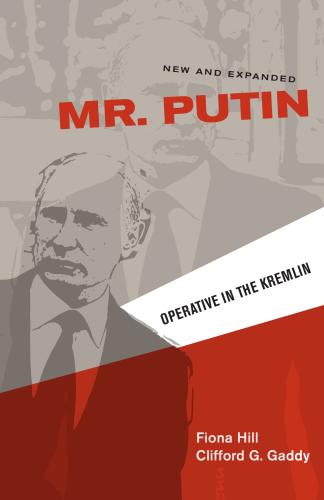
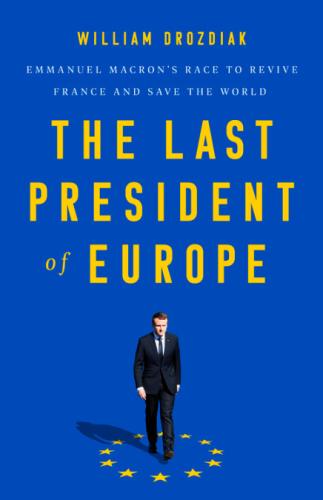
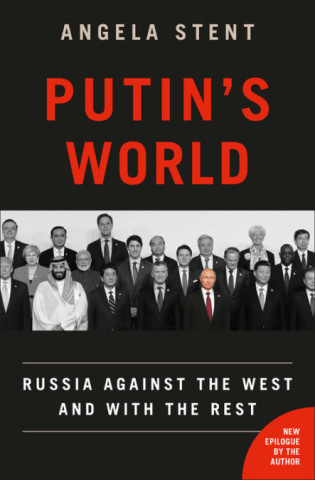
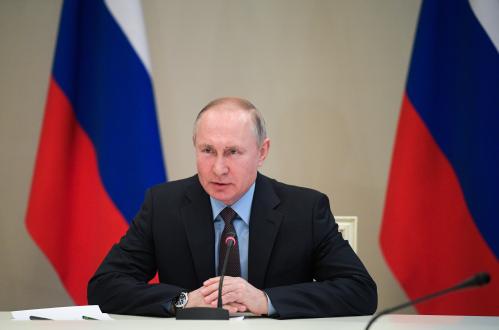
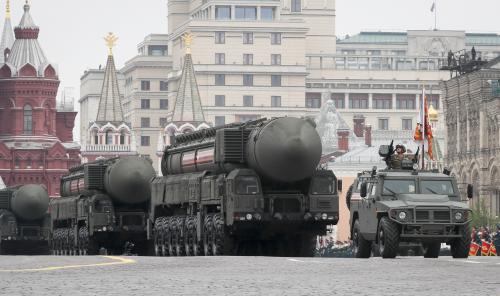
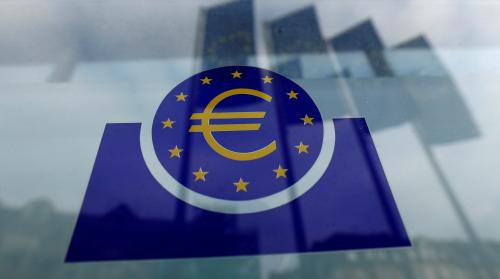
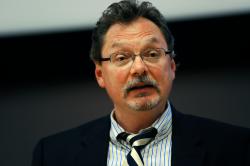

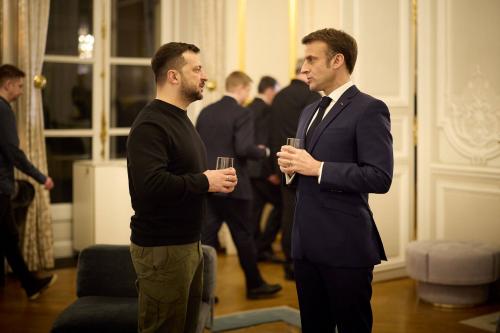

Commentary
The imperatives and limitations of Putin’s rational choices
April 28, 2020